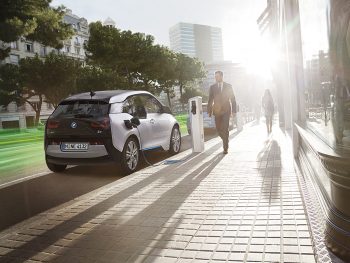Interview: Alphabet CCO Spencer Halil
After more than a quarter of a century in motor finance, Spencer Halil made the move from retail to fleet surroundings. Alphabet’s chief commercial officer tells John Challen what he’s learned so far.
In the nicest possible way, Spencer Halil has been around the industry a bit. Joining BMW Financial Services from Volkswagen Financial Services in 2006, he set up Alphera – the former’s motor finance division. In his time there he turned 2,000 contracts into more than 100,000, worked in Australia and helped relaunch Rolls Royce’s financial services division.
But now there’s a new challenge with Alphabet.
“There’s so much change going on in the fleet and leasing industry and I thought it would be an exciting job to take on,” says Alphabet’s chief commercial officer of less than a year. “And that’s why a retail guy is here sitting in a leasing company’s seat.”
Here, Halil shares his thoughts about the business and what the future holds.
He’s using his retail customer experience to good effect.
“It’s not like I’ve moved into a completely different industry. I’m very familiar with leasing products and particularly SMEs and the market, which is what you’d expect to deal with when you’re not in the corporate sector.
“Fundamentally, they’re both people businesses. They’re both led by listening to our customers and figuring out what it is that they need. Rather than just giving them the products that we happen to have on offer. We take a consultative approach to a relationship that adds value, rather than just sells on price.
“I’ve never worked for a company that just sells on price – we’ve always championed service and quality. That was very true in the retail side of the business and is even more true with us here now.”
As well as his customers, Halil wants to get to know the end users.
“Arrogantly, in retail, we think we’re closer to the customer and that we understand the customer more. But when I came to Alphabet, I recognised that, because of its multi-channel approach, the company has a very direct relationship with a really diverse range of customers.
“It’s obviously important that we work with the very senior people in those corporate customer relationships and the fleet managers. But we’re getting better at developing a relationship with the driver – the person closest to the steering wheel. It’s really important for us to understand how they perceive taking a car from Alphabet – whether it’s been a pleasurable experience and if it’s something they want to repeat.
“We want our drivers to say: ‘Yes, I want another BMW, Audi or Mercedes but I want to get it through Alphabet.’”
The recent rebranding of Alphabet is more than just a new logo.
“We felt the old brand could do with a refresh to reflect energy and dynamism in the sector at the moment. But it’s not just the visible bits we’ve changed, our values have been revamped too.
“For example, we’ve introduced the values of responsibility, expertise and partnership. We were already doing those things, but the brand didn’t necessarily reflect the way the business has evolved and where it is today.
“But the refresh of the physical elements gives us a platform. We’re going to be talking about our strategic ambitions around sustainability, digitalisation, ease and convenience of engagement with customers as well as flexibility.”

One of the biggest challenges for Alphabet in the coming years will be helping fleets transition to EVs
Picture credit: Alphabet
Meanwhile, Alphabet has clear short- and mid-term plans to support its customers.
“Within two years, I really want to start pushing forward on the development of consultative services within Alphabet. That will allow us to deliver support to our customers across the whole business, whether that is electrification, charging solutions, road pricing or personal taxation. Within that two-year timeframe, I want that to be something that Alphabet is a market leader on. Whether we provide it as an additional service, or as part of the package, will become clearer in that timeframe as well. But I want us to be leaders on that.
“Within five years, a good portion of our smaller consumer SME customers will want to have electrified their fleet. The challenge there is how do you go from a primarily diesel-driven fleet into an electrified fleet without blowing your cost base. We’re going to have to lead the way in terms of solutions around that area longer than five years.”
But beyond those five years? It’s a little less clear.
“I don’t know whether it’s 10 years, but I would put Mobility-as-a-Service (MaaS) as coming in that timeframe. Once you go beyond that five-year period, the learnings that we’ve got from operating a rental product in that space should really allow us to evolve to subscription and car sharing type platforms. But that depends if those products are still what our customers want us to deliver.”
Talking of MaaS, Halil believes it has a lot of potential.
“I think the business case for subscription services and car clubs is still yet to be proven on a mass scale. However, I think there’s certainly scope for those to be viable business models in high-density city centres. At Alphabet, we will move towards solutions that support those types of customers specifically.
“Those solutions will probably evolve out of our rental offerings. Rather than being something completely new in terms of the way we monetise the provision of a car, or multiple cars over a period of time, the key is going to have to be flexibility. From an Alphabet point of view, I would expect that we will partner with some sort of mobility tech company. Because, ultimately, the hardware that can make some of those things happen isn’t our specialism.”
This interview is from the latest issue of Fleet World magazine. To sign up for a subscription, click here.













